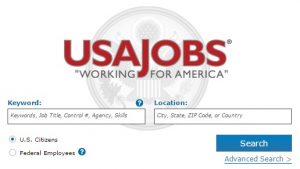Productively De-Stress This Winter Break
Posted: December 19th, 2016
Winter break provides the perfect opportunity for law students to replenish and recharge your batteries. Here are 8 suggestions to help you stay balanced, stress-free and productive in the coming weeks.
1. Set realistic expectations for yourself
Accept that you can’t be everything to all people. You can’t be in ten places at one time and can’t buy more gifts than your budget allows. You can be upfront, honest and diplomatic, without over promising. Your friends and loved ones will understand.
2. Eat strategically
With so many eating choices during the holidays, it’s easy to overindulge. Healthy decisions during the day will help. Get your day off to a strong start with a balanced breakfast including quality protein, some healthy fat and complex carbohydrates. Because it can be difficult to distinguish between hunger and thirst, keep yourself hydrated by continually drinking water throughout the day and at holiday parties. Finally, eat intuitively by enjoying the company of those around you, savoring your food and eating just until you are satisfied.
3. Practice mindfulness
Navigating the terrain of law school can make time pass in a blur, possibly making you feel stressed and depleted. Mindfulness practice helps you to focus on experience, resulting in numerous benefits for your mind and body. Below is a simple mindfulness exercise to practice during and after the holidays.
- Bring yourself into a posture that is upright and stable.
- Lower your eyes, (or close them if you prefer).
- Bring your attention to your breathing, following the in-breath, following the outbreath.
- Rest your attention on the flow of the breath through your body, with the intention of keeping it there.
- When you notice your mind wandering, bring your attention back to the breath.
- Do this for a few moments then lift your gaze or open your eyes.
4. Diffuse tension
Holidays can be loaded with stress. Contribute to stress free interactions by diffusing tension whenever possible. Do your part to de-escalate stressful situations and replace tension with something productive. If a situation is too challenging to de-escalate, then politely temporarily disengage by finding something else to do.
5. Reach out to friends and family
You’ll be seeing many friends and family over the coming weeks. This is also the perfect time to reach out to the friends and family you’ve intended to catch up with, but have not had the time to do so. Some of these folks – and you never know who – will have an interesting insight or connection.
6. Volunteer
Besides improving the lives of other, volunteer work has been documented to result in surprising benefits:
- Makes you feel as if you have more time
- Helps develop new skills
- Leads to better health
- Builds your experience – and resume
- Can lead to greater happiness
“One of the great ironies of life is this: He or she who serves almost always benefits more than he or she who is served.” – Gordon Hinckley
7. Plan ahead for the summer
If you haven’t started already, Winter Break is the time to get yourself ready to seek summer job opportunities and internships. Jump start your search before next semester begins by getting organized – develop a system for tracking applications and draft a list of potential employers. This is also a great time to put your networking skills to work: use LinkedIn or the WFU alumni database to identify potential professional contacts, then set up coffee, lunch, or a phone conversation for early January.
8. Refine your resume, cover letters and writing samples
While you have a bit more time to focus, fine-tune your job search materials. Is everything up-to-date, including most recent employment? Have you carefully proofed for typos? Are your materials, especially your cover letters, as engaging and compelling as possible? The content and quality of these materials can determine whether or not you move to the top of the employer’s pile.

 Law students the world over look forward to breaks from law school. Some students view these breaks as a holiday—a time to get away from the intense daily demands of their studies, travel, and visit with family and friends. Other students have ambitious plans for catching up or getting ahead in their studies. Regardless of which approach you take, you are probably pretty happy when you see Spring Break finally approaching. There is nothing wrong to either approach to Spring break, at least in the abstract. In fact, the best Spring Break plans should probably include some of both. The key is to come back to law school after the break in a better place than you were before—and accomplishing this task takes just a little advance planning. Here are a few tips for making the best use of your Spring Break this year:
Law students the world over look forward to breaks from law school. Some students view these breaks as a holiday—a time to get away from the intense daily demands of their studies, travel, and visit with family and friends. Other students have ambitious plans for catching up or getting ahead in their studies. Regardless of which approach you take, you are probably pretty happy when you see Spring Break finally approaching. There is nothing wrong to either approach to Spring break, at least in the abstract. In fact, the best Spring Break plans should probably include some of both. The key is to come back to law school after the break in a better place than you were before—and accomplishing this task takes just a little advance planning. Here are a few tips for making the best use of your Spring Break this year:




